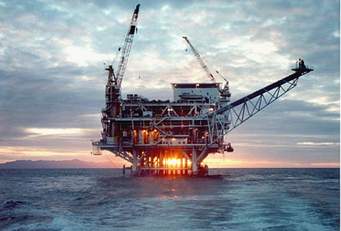OPEC+ impasse could derail economic recovery in developing countries
The International Energy Agency (IEA) has warned that the economic recovery in emerging and developing countries could be derailed if the impasse among top oil producers over releasing more supply is not resolved.
According to the Paris-based energy agency, the Organisation of the Petroleum Exporting Countries Plus (OPEC+) stalemate means that production quotas will remain at July’s levels until a compromise can be reached.
This situation, IEA argues, would make oil markets tighten significantly as demand rebounds from last year’s COVID-induced plunge.
The agency noted that “the overhang in global oil stocks that built up last year has already been worked off, with OECD industry stocks now well below historical averages.”
Therefore, “oil markets are likely to remain volatile until there is clarity on OPEC+ production policy, and volatility does not help ensure orderly and secure energy transitions – nor is it in the interest of either producers or consumers,” the IEA added.
This caution was contained in the IEA’s monthly oil market report for July 2021.
OPEC+ last week failed to reach a deal over adding more oil production after key member the United Arab Emirates rejected an agreement that did not revise how its production target was calculated.
This left the group sticking with its existing supply curbs, helping drive oil prices to the highest level since 2018 last week, above $75 a barrel, though they have since pulled back slightly.
OPEC+ last year slashed oil production by almost 10% of pre-pandemic global demand as lockdowns and travel bans hammered consumption of fuels.
While the group, including Saudi Arabia and Russia, has slowly been restoring production, about 6 million barrels per day (b/d) are still being held back from the market.
The IEA said that after global demand fell last year from about 100m b/d to 91.1m b/d, it was expected to grow by 5.3m b/d in 2021, getting back to 96.4m b/d.
It adds that by 2022 it is expected to average 99.5m b/d, with consumption almost fully restored to the level it was before the pandemic.
Demand is expected to grow particularly fast in the third quarter of this year as vaccination programmes in developed countries lead to a rapid reopening of the economy and greater mobility, boosting fuel demand.
The IEA said consumption would jump by 3.3m b/d quarter on quarter during July-September, a level it said was two to three times as large as the normal quarterly seasonal increase for that time of year, and 44.1m b/d in the fourth quarter, the IEA said.
READ ALSO: Oil Prices Climb On An Optimistic Outlook From OPEC+
Oil prices
The IEA said it expects global oil demand to rise by 5.4 million barrels per day this year and by a further 3 million barrels in 2022, largely unchanged from last month’s forecast.
Meanwhile, the “remote” possibility of a market share battle between producers is hanging over energy markets, the IEA said, warning that higher fuel prices and rising inflation could damage a fragile economic recovery.
The uncertainty over the potential global impact of the highly transmissible Covid-19 delta variant was also likely to temper market sentiment in the coming months, the group said.
International benchmark Brent Crude futures traded at $75.57 a barrel on Tuesday morning, up 0.5% for the session, while U.S. West Texas Intermediate futures stood at $74.51, around 0.6% higher.
“While prices at these levels could increase the pace of electrification of the transport sector and help accelerate energy transitions, they could also put a drag on the economic recovery, particularly in emerging and developing countries,” the IEA said.
Oil prices rallied more than 45% in the first half of the year, supported by the rollout of Covid vaccines, a gradual easing of lockdown measures and record production cuts from OPEC+.
“Although bullish sentiment has been somewhat tempered recently, oil prices are still comfortably holding above $70/bbl. Whether this remains so depends wholly on the next move by the OPEC+ alliance,” Stephen Brennock, oil analyst at PVM Oil Associates, said in a research note.
“The longer the stand-off continues, the harder it will be to resolve the situation,” he added.



